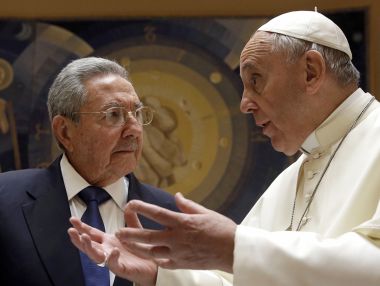Relations thawing between Cuba and Europe
Cuba and the European Union on Friday advanced ever closer to a new bilateral agreement that would replace a unilateral policy imposed by the Europeans 20 years ago.

Cuba's lead negotiator said the two sides might be able to conclude two years of negotiations during a visit to Havana by EU foreign policy chief Federica Mogherini on March 11.
A deal would hand Cuba another achievement on the international stage following its détente with the United States 15 months ago and the renegotiation of its debt with creditors from the Paris Club of wealthy nations in December.
Representatives of the Communist-led island and the 28-nation European bloc are seeking a far-reaching accord that would outline relations on politics, commerce and aid.
The latest talks took place Thursday and Friday in Cuba, the seventh such meeting alternating between Havana and Brussels.
"We hope that during the visit of Ms. Mogherini the right political conditions will exist so that we can conclude this agreement on political dialogue and cooperation," Abelardo Moreno, Cuba's deputy foreign minister for European affairs, told a news conference.
His European counterpart, chief EU negotiator Christian Leffler, was more cautious on reaching a rapid conclusion.
"If between today and next week we can advance still more in the negotiations to finalize an agreement, clearly we would be happy, but this is an accord that has to serve us for many years," Leffler told a separate news conference.
Leffler said it was a coincidence that Mogherini would arrive shortly before U.S. President Barack Obama, who is due to visit Cuba on March 21-22, the first such visit since the 1959 revolution that overthrew a pro-American government and brought Fidel Castro to power. Pope Francis has been heavily involved in efforts to improve relations with Cuba.
Obama's trip will coincide with an exhibition baseball game between Cuba's national team and Major League Baseball's Tampa Bay Rays, to be followed three days later by a free, open-air Rolling Stones concert in Havana, two more notable markers in the international opening toward Cuba.
The EU's decision in 2014 to open talks was a victory in itself for Cuba as a European acknowledgment it would have to scrap its "common position," which placed a priority on democratic reforms and improved human rights in Cuba.
Cuba has always rejected international suggestions it should change its one-party system or that human rights on the island were lacking.











